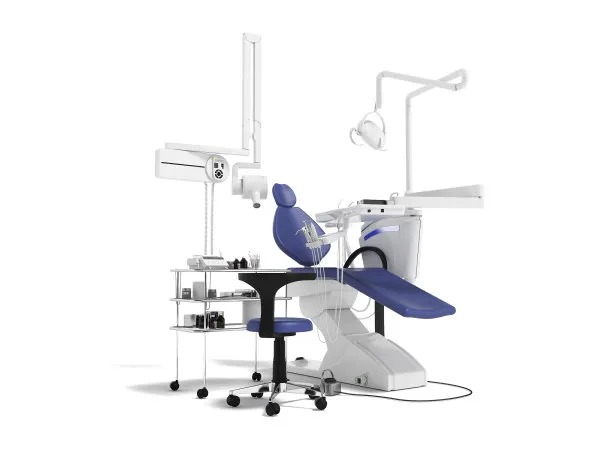Summary: Dental fillings are essential for restoring the function and appearance of teeth affected by cavities or decay. However, before undergoing this treatment, its crucial to consider several guidelines and precautions to ensure optimal results and maintain oral health. This article outlines essential factors to take into account prior to a dental filling procedure. By focusing on choosing the right dentist, understanding the filling materials, assessing your dental health, and preparing for the procedure, patients can achieve better outcomes and ensure a smoother experience. Through informed decisions and proper preparation, individuals can promote their overall oral well-being while minimizing discomfort and anxiety associated with the filling process.
1. Choose the Right Dentist for Your Needs

Selecting a qualified and experienced dentist is the first critical step before undergoing dental filling procedures. Ensure that the dentist is licensed, has a positive reputation, and is well-reviewed by other patients. Recommendations from family and friends can provide valuable insights into a dentist鈥檚 skills and demeanor, which are essential in alleviating any anxiety associated with dental visits.
It is also advantageous to schedule a consultation before the actual filling procedure. This meeting allows patients to discuss their specific needs, ask questions about the process, and understand the dentist鈥檚 approach. An open dialogue can help build trust and ensure that patients feel comfortable with their chosen professional.
Additionally, consider additional qualifications, such as specialized training in restorative dentistry. A dentist with advanced training can offer various options for fillings and enhance the overall quality of care provided.
2. Understand the Different Types of Filling Materials
The choice of filling material plays a significant role in the overall success of the dental filling procedure. Common materials include amalgam, composite resin, porcelain, and gold. Each type has unique benefits and drawbacks, and understanding these can help patients make informed decisions about their treatment.
Amalgam fillings, made from a mixture of metals, have been used for decades due to their durability and strength. However, they are more noticeable than other materials and may not be suitable for visible areas of the mouth. In contrast, composite resin fillings are favored for their natural appearance and are more aesthetically pleasing, making them ideal for front teeth.
Lastly, consider factors such as longevity, cost, and maintenance requirements when discussing filling options with your dentist. This knowledge will help you choose a material that fits not only your dental needs but also your lifestyle and budget.
3. Assess Your Overall Dental Health
Before undergoing a dental filling, its vital to evaluate your overall dental health. Issues like gum disease, tooth sensitivity, or other dental problems can affect the filling procedure and its success. Consult with your dentist to ensure that your oral health is in optimal condition for treatment.
Additionally, disclosing your complete medical history is essential. Inform your dentist of any medications you are taking or conditions you may have that could impact healing. Transparency will enable the dentist to tailor the treatment plan to suit your unique circumstances.
Regular dental check-ups are invaluable for preventing decay and identifying problems early. Maintaining a consistent oral hygiene routine, including brushing and flossing, can significantly reduce the likelihood of requiring extensive dental work, including fillings, in the future.
4. Prepare for the Dental Filling Procedure
Preparation for your dental filling can significantly ease the process and enhance your comfort. It is advisable to have a light meal before the appointment. Arriving on a full stomach can help minimize any anxiety or discomfort you may experience. However, if you require sedation, follow your dentist鈥檚 guidelines regarding eating and drinking.
Understanding what to expect during the filling procedure can further alleviate anxiety. Your dentist will typically begin by numbing the area around the affected tooth. After removing the decayed material, the filling material will be applied and shaped. Knowing these steps can help demystify the process and allow for a calmer experience.
Don鈥檛 hesitate to ask your dentist about post-treatment care. Knowing how to care for your new filling can prolong its lifespan and keep your oral health in good shape. Discuss any concerns regarding recovery, potential discomfort, or activity restrictions following the procedure to be well-prepared.
Summary: In conclusion, understanding essential guidelines and precautions before undergoing dental filling procedures is vital for ensuring optimal oral health care. Patients should prioritize selecting a qualified dentist, comprehending filling material options, assessing dental health, and preparing adequately for the procedure. These steps can lead to a positive experience and successful outcomes in restorative dental care. Adopting a proactive approach to dental procedures lays the groundwork for better oral hygiene and preventative care in the long run.
This article is compiled by Vickong Dental and the content is for reference only.
Vickong Dental
Vickong Dental is a large medical group established in Hong Kong in 2008 by professors from well-known medical universities in Guangdong and Hong Kong, as well as medical doctors from key national '985' universities (including Master's supervisors and senior professors). The chain of branches brings together expert dentists with PhDs and Master's degrees from Hong Kong and Mainland China, committed to providing high-quality dental treatment.
"Vickong Dental Practices the University Motto of 'Healing and Serving Society,' with a Stable Operation for Sixteen Years. It Has Been honored with Hong Kong Enterprise Leaders's Choice,' and is a Global Trusted Implant Center for the Nobel Implant System. Recommended by Hong Kong Metro Broadcast and Guangdong Television, it Serves Customers from Over Thirty Countries and Regions, Gaining the Trust and Favor of Citizens from the Guangdong-Hong Kong-Macau Greater Bay Area and Surrounding Cities.

Thousands of customers' unanimous praise
The most recognized and highly recommended dental service by customers in the Guangdong-Hong Kong-Macau Greater Bay Area
We Ensure You Receive Detailed Care and Attention Here
Hong Kong standards, Shenzhen prices, Your Trusted English-speaking dentists

Vickong Dental Medical-Grade Instrument Disinfection Process
Vickong Dental Medical-Grade Instrument Disinfection Process

Vickong Dental Chain: A Warm and Comfortable Environment for Treatment






Appointment Hours

Q&A
Why choose Vickong Dental?
Vickong Dental practices the university motto 「Medicine to Benefit Society」, with each branch bringing together highly qualified dentists with doctoral and master’s degrees from Hong Kong and the Mainland, and has maintained seventeen years of steady operation。Recipient of 「2024 Hong Kong Enterprise Leaders Brand」, 「2025 Hong Kong Enterprise Leaders Brand」, a Nobel Biocare Global Trusted Implant Center, and a brand recommended by Metro Radio Hong Kong and Guangdong TV。
To date, we have served customers from more than thirty countries and regions,earning exceptionally high word-of-mouth recognition and trusted recommendations from residents across the Guangdong-Hong Kong-Macao Greater Bay Area and surrounding cities
We have eight major branches in Zhuhai、Shenzhen,and a consultation and service assurance center in Hong Kong,so you can book a free consultation at any time for any questions,which is very reassuring.
If I do not accept the quotation after the CT scan, will I be charged??
No! As long as the actual treatment has not started, you will not be charged any fees.
Will there be any additional charges during the treatment process?
No, there won’t be any additional charges. Before treatment begins, we will clearly explain the treatment plan and its corresponding fees. Only after the patient agrees and signs the consent form will we proceed with the dental service.
Can I pay in Hong Kong dollars?
Yes. Vickong Dental accepts payment in Hong Kong dollars. The amount will be converted based on the exchange rate of the day, and the applicable rate will be clearly communicated to you in advance.
Can I reschedule my appointment at any time?
Yes. Please contact us via **WeChat** or **WhatsApp** as early as possible, providing your original appointment time and details, along with your preferred new date and time slot for rescheduling.













